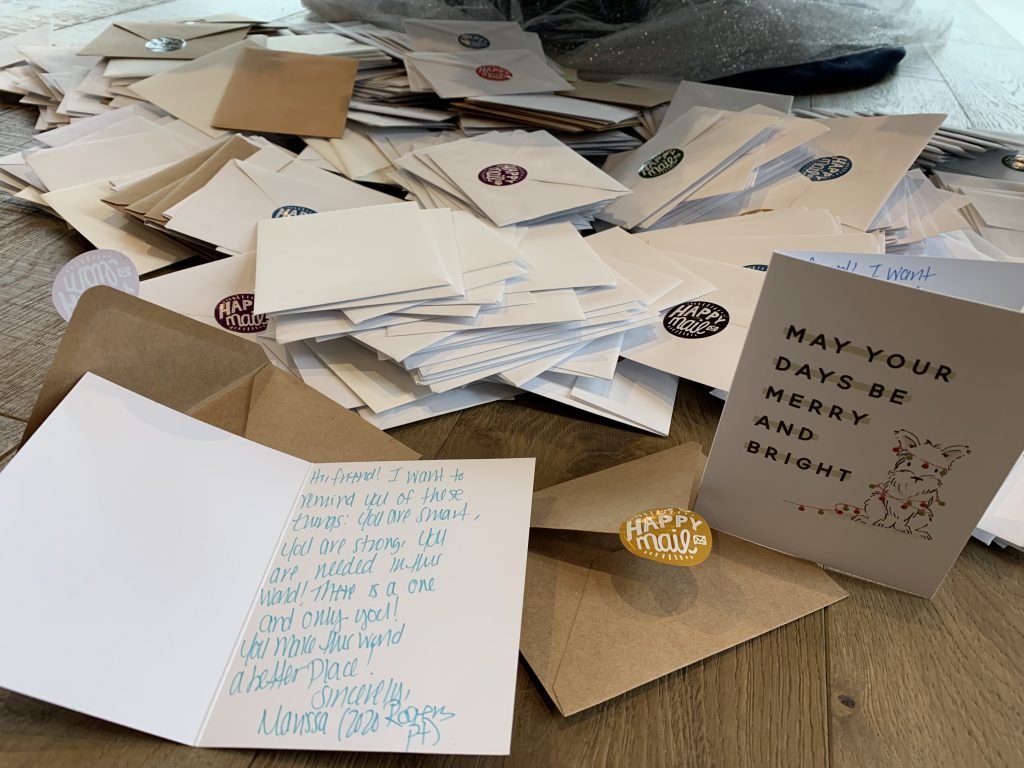The journey of one person’s recovery takes a village. We at Rogers Behavioral Health Foundation know this and are grateful for the support we receive from former patients, their families, and the community we serve.
Sometimes, support in one’s recovery can come from unexpected places, like Marissa, a grateful former patient who dispenses joy and support to current patients at Rogers Behavioral Health by sending them individual, handwritten cards during the holidays.
“The idea of writing cards and sending them out began in 2016 while I was in the intensive outpatient program for depression and anxiety at Rogers’ clinic in Appleton, Wisconsin. We discussed the importance of including enjoyable activities into our daily lives, activities that would bring us purpose, satisfaction, and joy. For me, that was writing cards. What began as sending out birthday cards transpired into sending out cards for larger groups of people, eventually finding its way back to Rogers.”
Marissa shares how impactful these cards can be for patients during what is often a difficult time, “The purpose behind writing cards for these patients is to remind them how strong they are, that there is purpose to their life, and that they are not alone. No one should ever feel alone in their struggle, so my hope is that they will know there is someone out there who cares and understands.”
Marissa’s recovery began at Rogers in 2016 and continued in 2020. As part of her journey, she shares the story of her battle with mental illness in the hopes of reducing stigma around mental health. “I used to be afraid of telling people about my mental illnesses with fear of judgment. But, as I have learned from being a patient at Rogers, one of the best things I can do to heal is share my story. By sharing my story, not only am I helping others, but I am helping myself. I am reducing the stigma on both ends.”
Nearly one-third of Americans have worried about others judging them when they told them they have sought mental health services, and over a fifth of the population has even lied to avoid telling people they were seeking these services. Hearing people share their stories of recovery from mental health and addiction challenges is the primary evidence-based practice to reduce stigma. At Rogers Foundation, thanks to brave individuals like Marissa, we are working to reduce the stigma surrounding mental illness and addiction and show others that they are not alone.
“Many people struggle with mental illness, but few are vocal about their struggle. OCD, anxiety, and depression have been part of my vocabulary for sixteen years, half my life. And, as of a year ago, ADHD has been added, as well. Mental illness is nothing I am ashamed of, but rather I embrace it to provide hope for those feeling alone in their struggle.”
